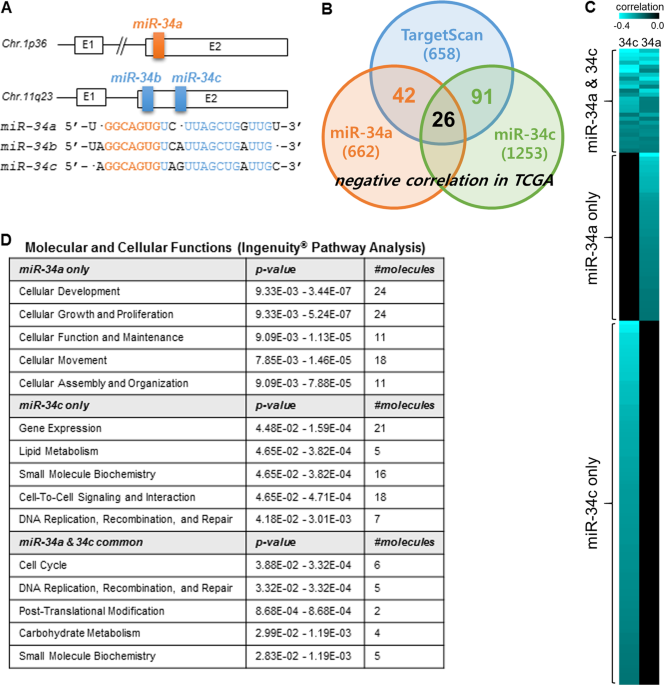Downregulation of microRNA-34 induces cell proliferation and
$ 25.00 · 4.9 (649) · In stock
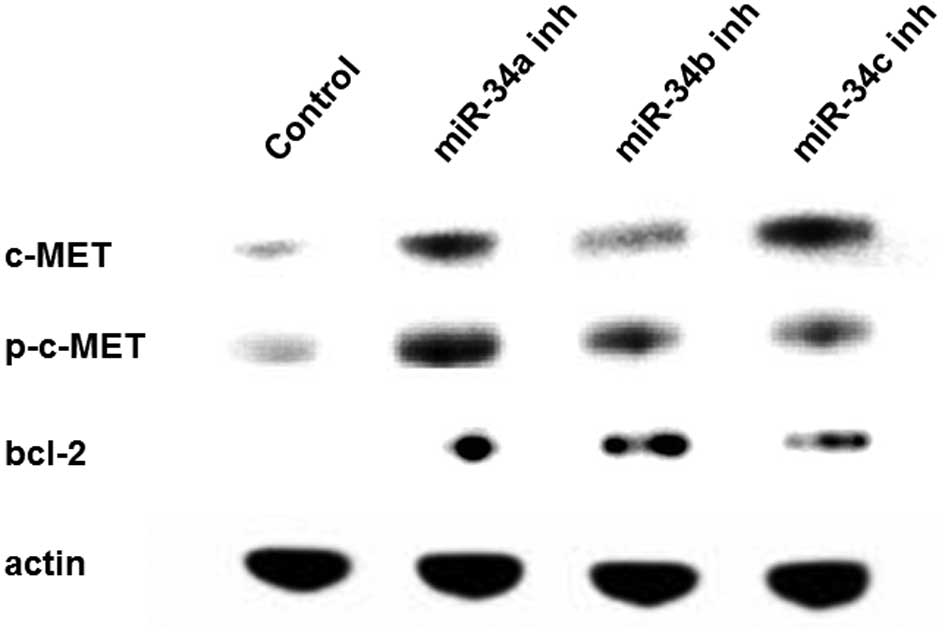
Malignant mesothelioma (MM) is an aggressive tumor with a dismal prognosis, and the molecular alterations involved in this disease remain unknown. We previously reported that microRNA-34s (miR-34s) are methylated and downregulated in MM and may play an important role in the carcinogenesis of MM. In this study, we downregulated miR-34s in human mesothelial cells to investigate the cellular effect of miR-34 knockdown. For the cell study, we used LP-9, a human mesothelial cell line, and three human primary-cultured mesothelial cell lines. RNA-based miR-34a, -34b and -34c inhibitors were transfected into these cells, and their effects on proliferation and invasion were evaluated. A scramble RNA oligonucleotide was used as a control. The protein expression status was estimated using western blotting. After miR-34 inhibitor transfection, miR-34a, -34b and -34c were downregulated in all the examined mesothelial cell lines. miR-34 inhibitor transfection significantly increased cell proliferation in all of the mesothelial cell lines, compared with the scramble control. The invasive ability also increased in the miR-34 inhibitor transfectants, compared with the scramble control, in the LP-9 cell line. Western blotting confirmed the upregulation of c-MET, phospho-c-MET, and bcl-2 proteins in LP-9 cells after miR-34 inhibitor transfection. In conclusion, our study showed that the downregulation of miR-34s induced an oncogenic phenotype in non-malignant mesothelial cells. The present study, together with the results of our previous report, strongly suggest that miR-34s play an important role in the early carcinogenic process involved in the transformation of human mesothelial cells to MM.
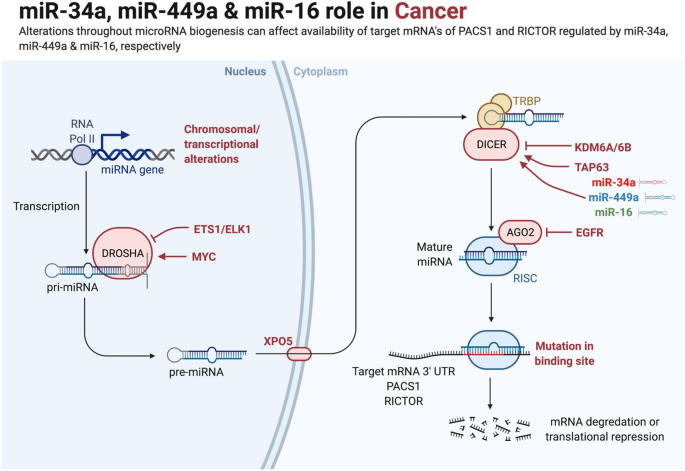
Dynamical modeling of miR-34a, miR-449a, and miR-16 reveals numerous DDR signaling pathways regulating senescence, autophagy, and apoptosis in HeLa cells
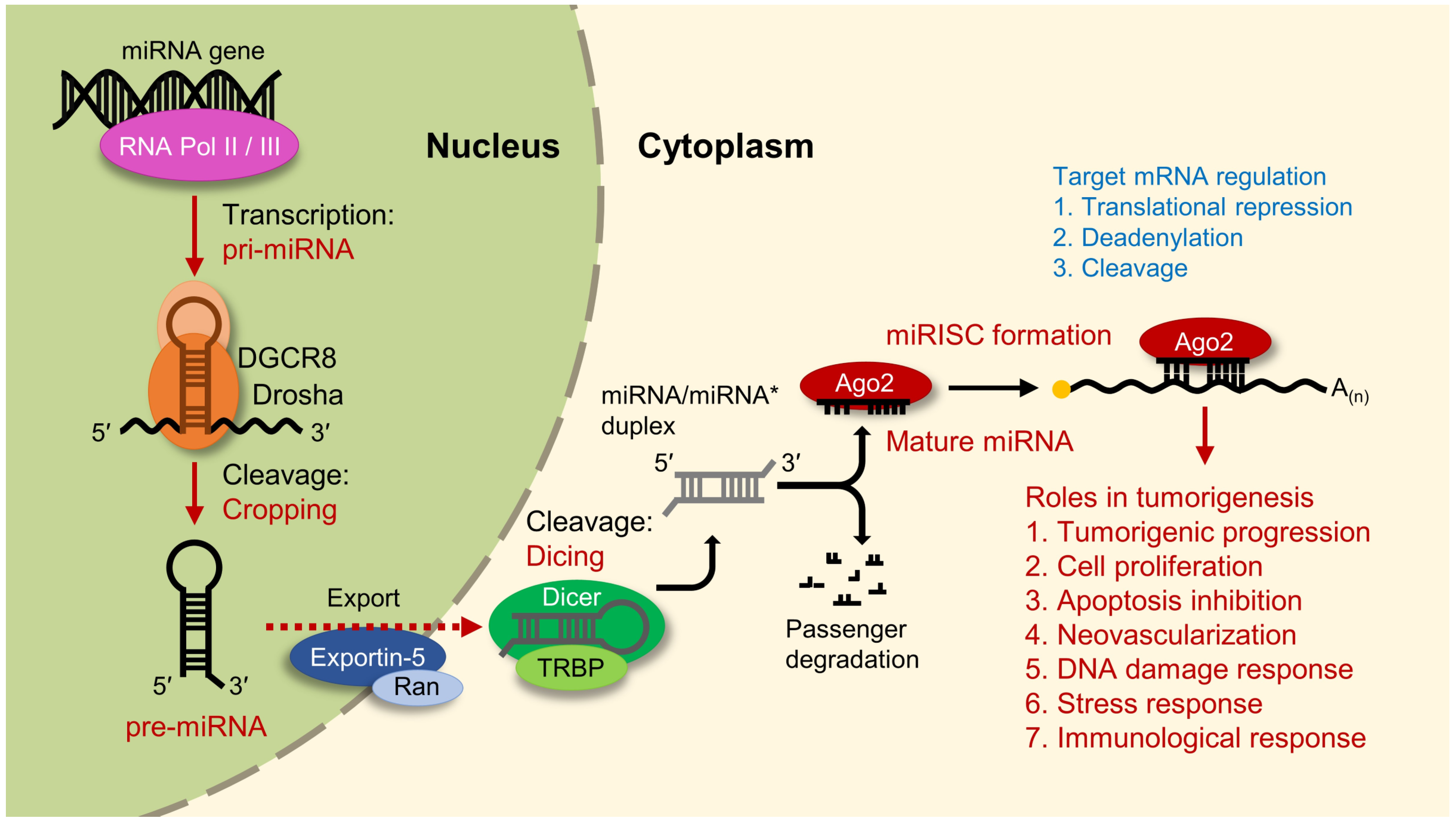
Cells, Free Full-Text

PDF) Manipulating microRNAs for the Treatment of Malignant Pleural Mesothelioma: Past, Present and Future
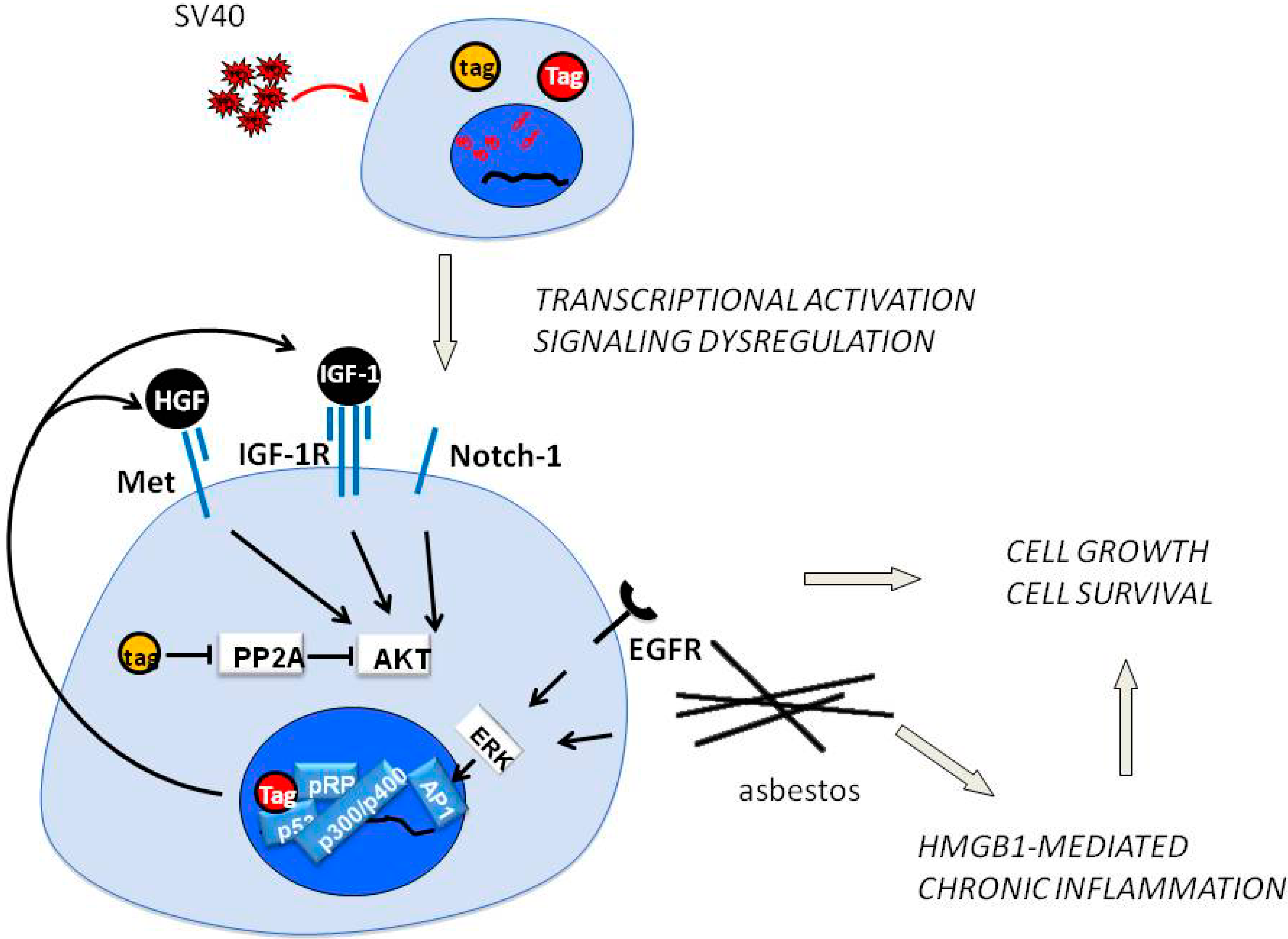
Biomedicines, Free Full-Text
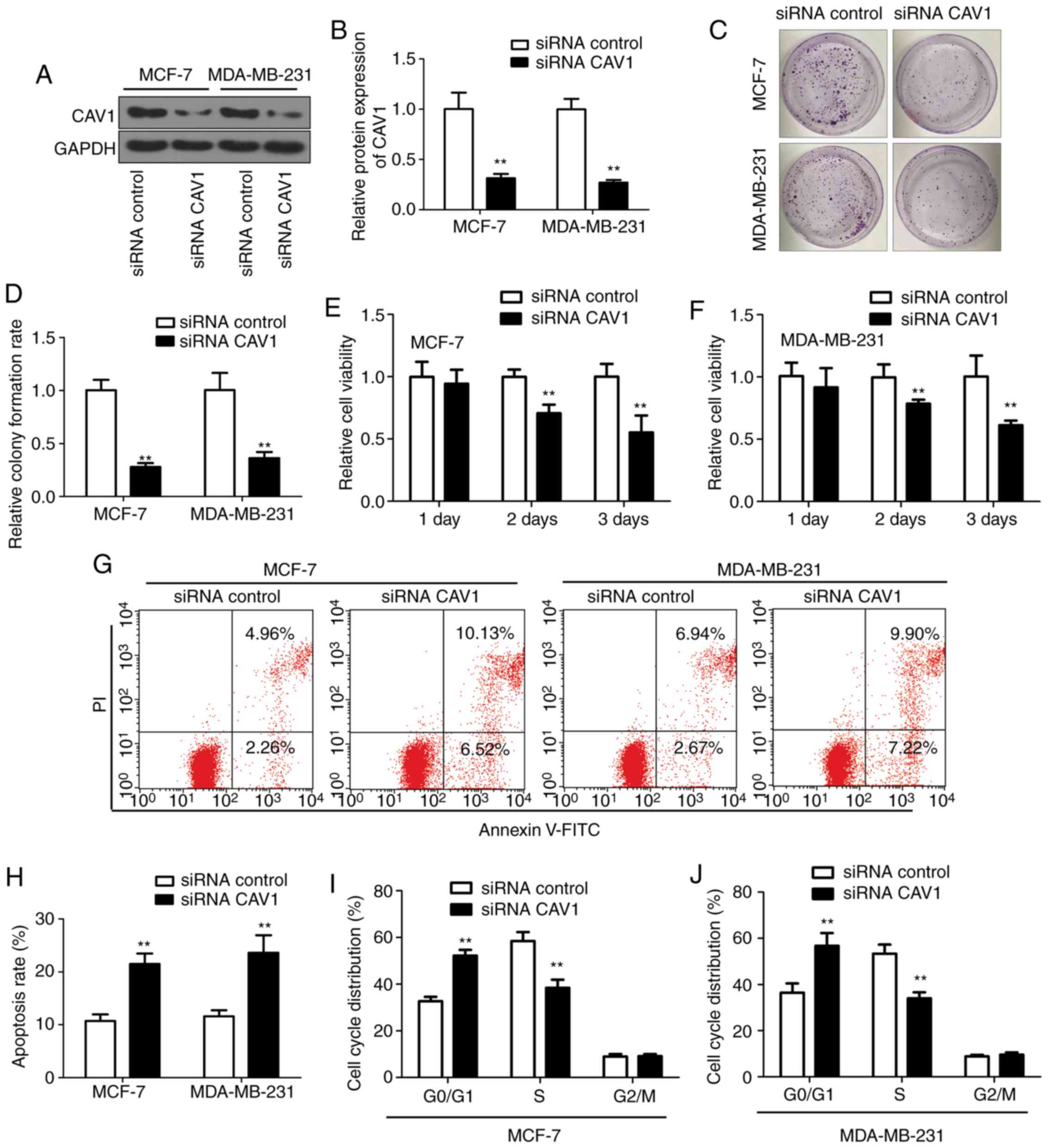
MicroRNA‑192 inhibits cell proliferation and induces apoptosis in human breast cancer by targeting caveolin 1
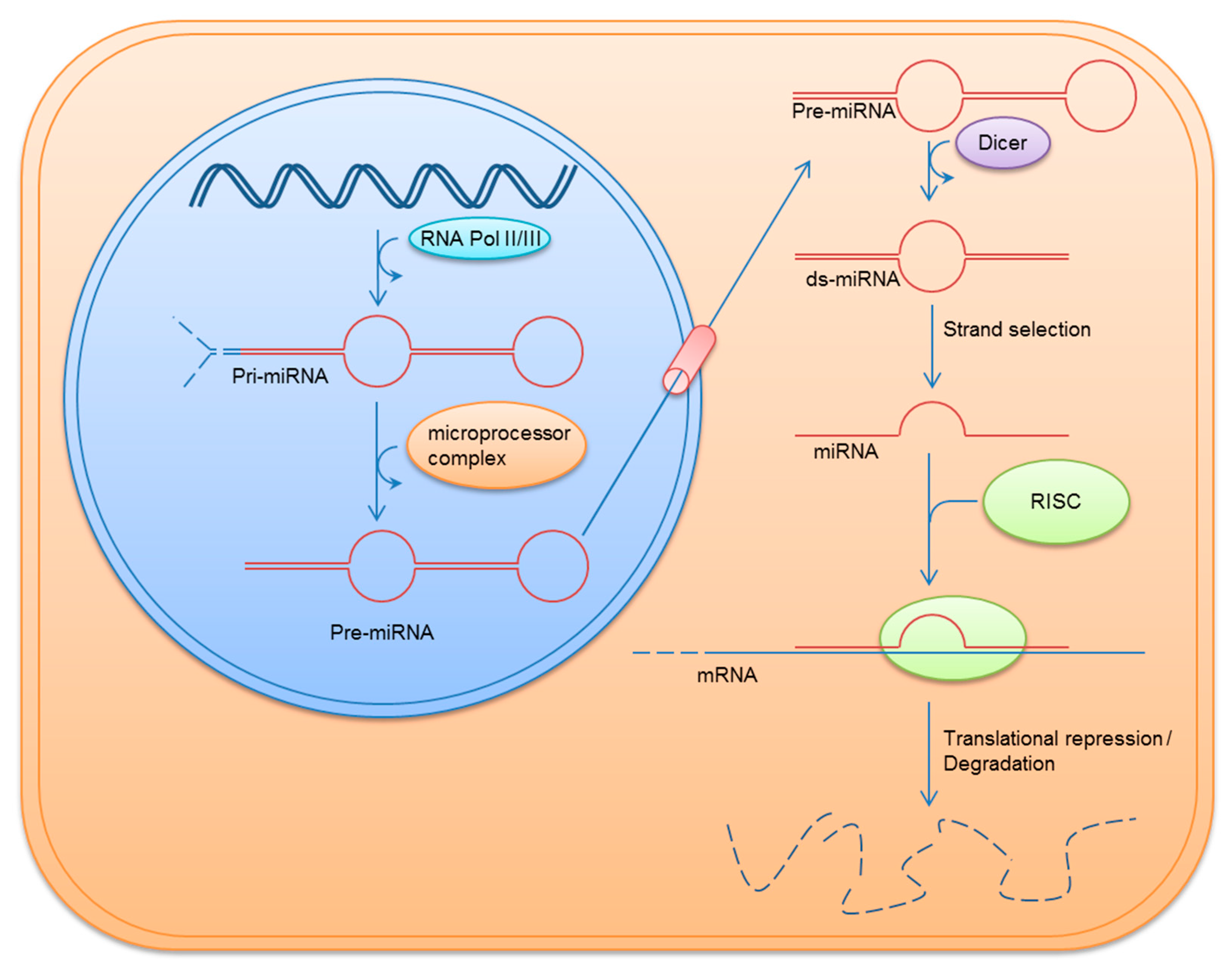
IJMS, Free Full-Text
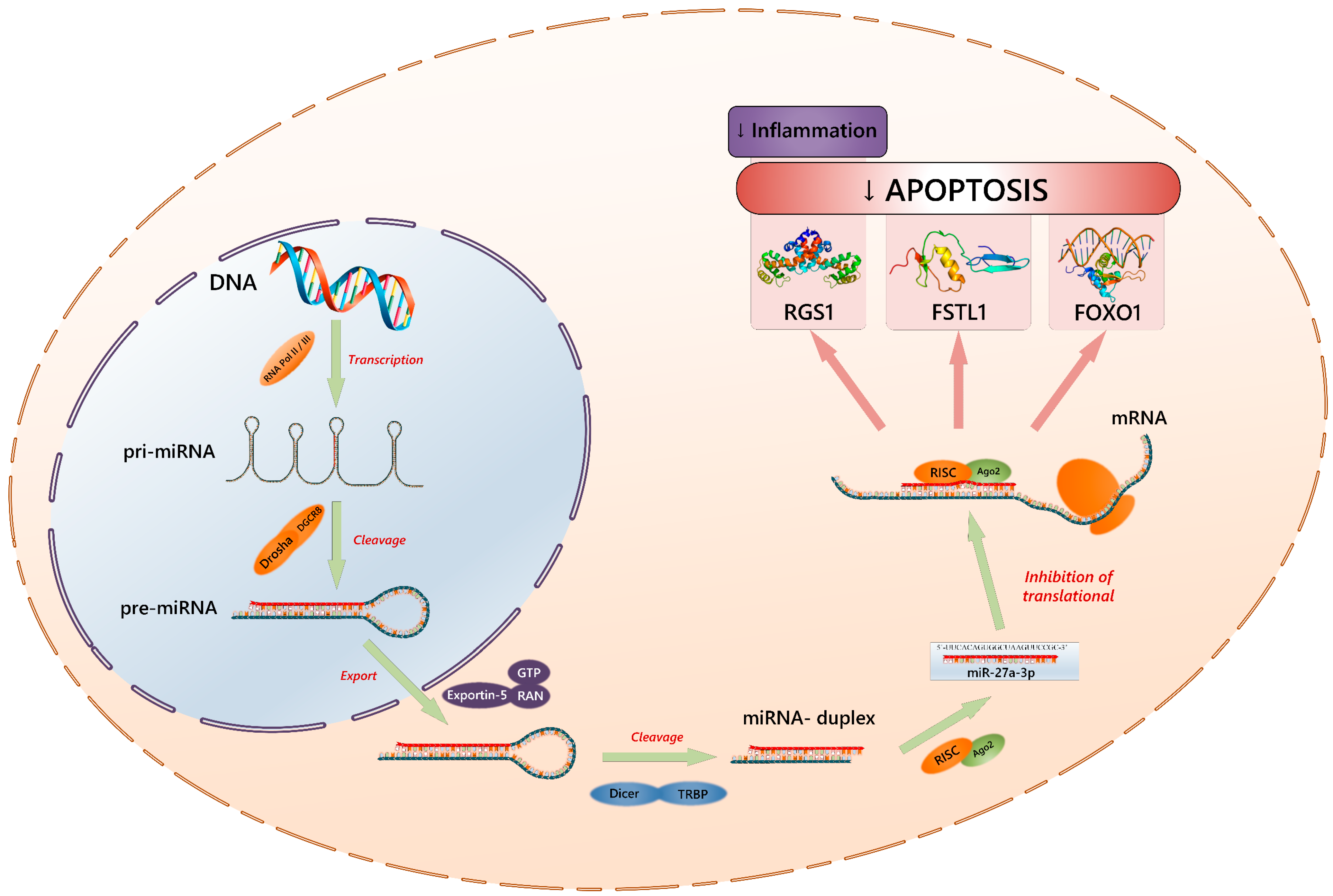
IJMS, Free Full-Text
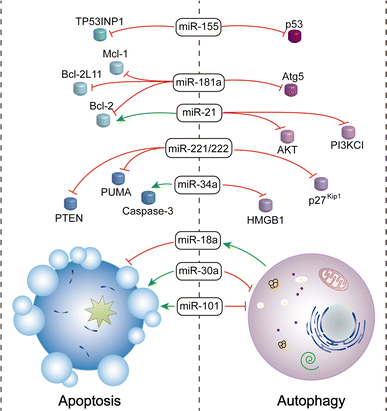
Oncogenic and tumor suppressive roles of microRNAs in apoptosis and autophagy

Anti‐hsa‐miR‐59 alleviates premature senescence associated with Hutchinson‐Gilford progeria syndrome in mice

MicroRNA-138 suppresses glioblastoma proliferation through downregulation of CD44
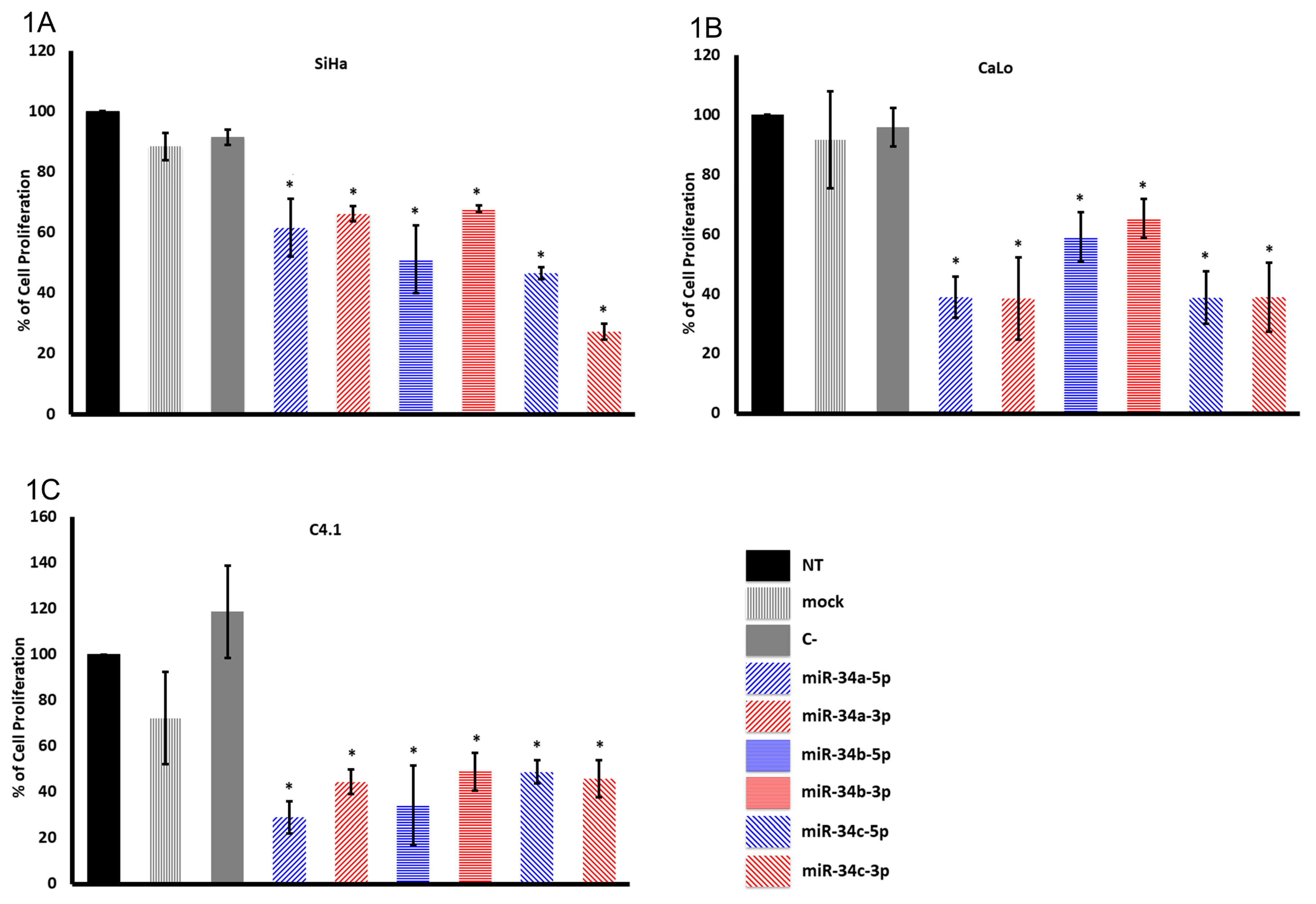
IJMS, Free Full-Text
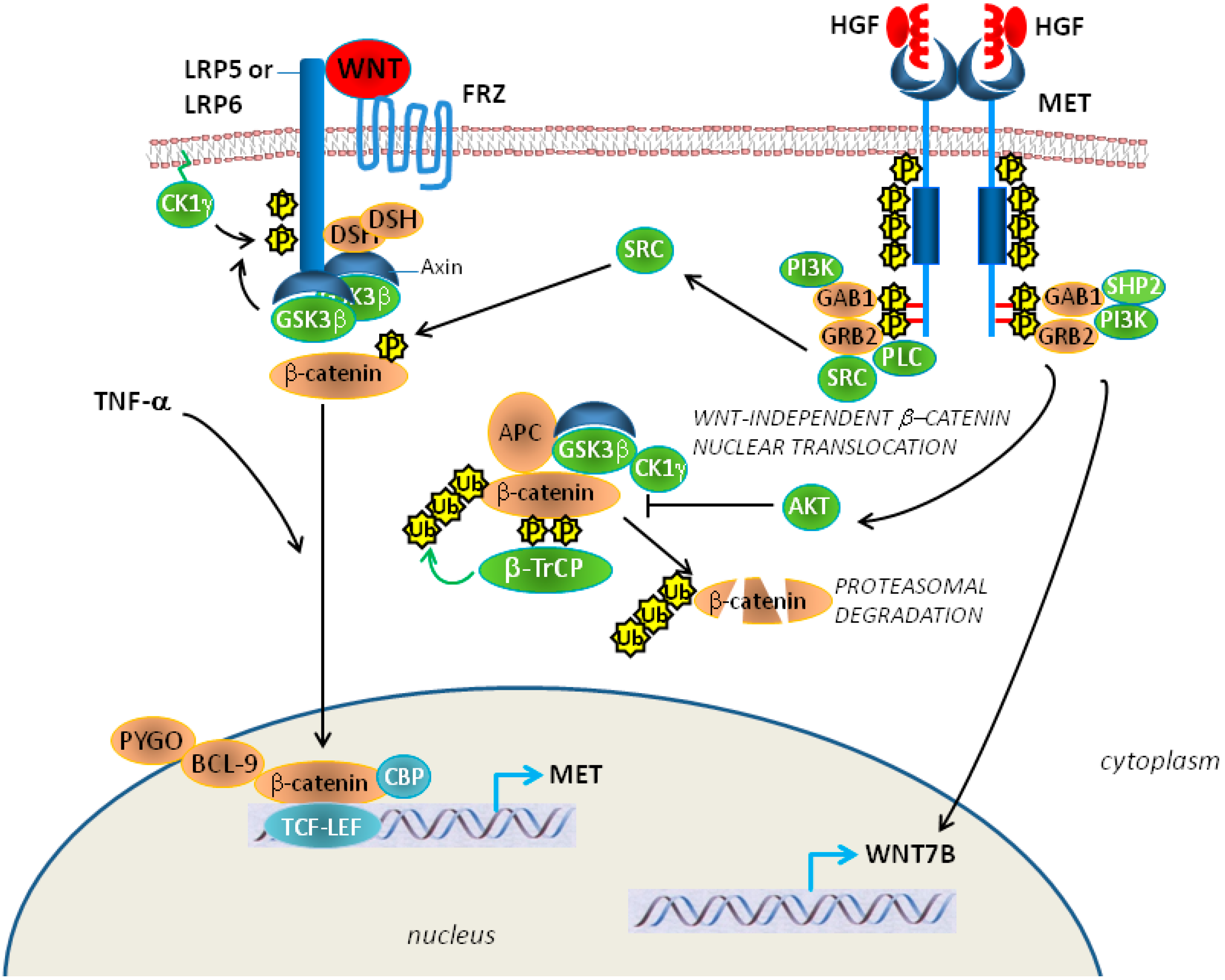
Biomedicines, Free Full-Text

One step ahead: miRNA-34 in colon cancer-future diagnostic and therapeutic tool? - ScienceDirect








